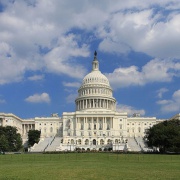Revival of VALID Act Draws Mixed Response
March 9, 2020 — The revival of legislation to change the regulation of laboratory-developed tests (LDTs) has drawn a mixed response. The reintroduction of the Verifying Accurate, Leading-edge IVCT Development (VALID) Act is intended to remove barriers that are believed to have impeded the U.S. government’s response to the coronavirus epidemic.
The issue of diagnostics regulation has emerged as a political lightning rod, with some faulting the Trump administration’s response to the outbreak and others blaming what they claim is a history of federal overregulation of clinical labs.
“The industry associations that produce commercial IVD kits and pathologists who are concerned about overcommercialization of lab tests are clashing with representatives of the laboratories themselves. These opinions represent longstanding positions of the players.”
Clinical labs are regulated by the U.S. Centers for Medicare and Medicaid Services (CMS) under CLIA and are not typically subject to oversight by the Food and Drug Administration (FDA). However, the FDA does regulate individual diagnostic tests, with diagnostic manufacturers required to gain FDA approval to market their assays. Yet another regulatory category, laboratory-developed tests, are tests that labs can develop and use on their own.
The situation has created several hurdles in responding to the novel coronavirus. When the FDA declared the coronavirus a public health emergency, it triggered a requirement that labs in the field get the FDA’s blessing to use their LDTs for the virus. The FDA subsequently waived this rule on February 29, but the need for a permanent solution to the regulatory environment is apparent…
To read more, please visit LabPulse.com: https://www.labpulse.com/index.aspx?sec=sup&sub=lab&pag=dis&ItemID=800854



